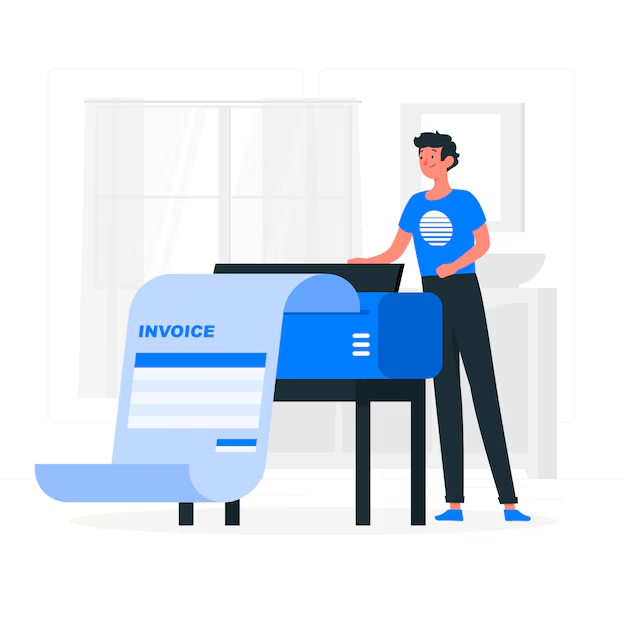Imagine trying to bring things into the country for your business, but the process is slowed down, you get fined, and there are other problems. This is where the important “Bill of Entry (BoE)” paper comes in. This document is an integral part of foreign trade because it ensures that goods entering India follow the customs rules.
India’s dedication to making trade easier is shown by the World Customs Organisation’s (WCO) yearly National Time Release Studies (NTRS) starting in 2019. These studies examine how long it takes to handle Bills of Entry and Shipping Bills. This informs us about how efficient customs are and shows us where to improve. But just what is a Bill of Entry, and how does it affect your company?
This post will help you fully grasp the BoE, including what is bill of entry is and how it impacts business activities. This guide will help you understand the role of global trade in the import-export process and stress how important it is for your business, whether you’re a buyer, an exporter, or just interested in it.
Menu list
Bill of Entry: A Key Document for Customs Clearance
Wondering what is Bill of Entry? The Bill of Entry is an essential legal paper to get goods through customs. It’s an official document that tells customs what goods were brought in and meets the standards for clearance. The paper lets the importer pay the duties and taxes due, which international trade laws require.
The BoE also lets businesses claim ITC on foreign goods, which helps them lower their output tax by offsetting taxes paid on inputs. It’s important to remember that you can only claim ITC on IGST and GST compensation Cess and not on the central customs tax.
Now that you know how important the BoE is, let’s look at the different kinds of it, each designed for a different type of import or export.
Types of Bill of Entry
After knowing what Bill of Entry, you have to know the types of Bill of Entry. Anyone who deals with foreign trade needs to know about the different kinds of Bills of Entry. The types depend on why the things are being brought in and what they will be used for. Here are the main kinds of BoE:
1. BoE for Home Consumption
The most popular type of Bill of Entry is for home use. It’s used when things are brought into the country to be used there, like for resale, production, or personal use. When things are brought into the country to be used or sold there, this BoE is filled out. It includes the payment of any duties and taxes that are due.
2. BoE for Bond Clearance
A Clearance of Bonds BoE is used for things brought in under a bond. This entry type is used when things are brought into the country for a specific reason, like storage or processing, and duties will be paid later. In this case, the BoE will include the bond number and the date it was issued. This is to ensure that the customs department has all the information it needs.
3. BoE for Warehousing
A Warehousing BoE is used when things are brought into a warehouse but aren’t ready to be used immediately. The goods are kept in the warehouse until the importer chooses to clear them, either to use them or do something else. These rules from the BoE let the goods stay in a building approved by customs without having to pay duties until they are moved out.
4. BoE for Exports
As an Export: When things leave the country, complete the BoE form. The Bill of Entry makes sure that the things being sent out follow customs rules and have all the necessary paperwork for export.
5. BoE for Transit
A Transit Bill of Entry is needed for things that are being moved through a country on their way to another country. This BoE ensures that things don’t get taxed when they go through customs because they aren’t meant to be used in the transit country.
6. BoE for Re-export
A re-export bill of entry is used to return goods brought into the country for the first time for resale. This type of entry ensures that the goods have all the proper paperwork and are clear to export. If any duties are due, they are refunded under the re-export rules.
Importance of Filing a Bill of Entry
It is essential for online stores, especially small and solo businesses, to file a BOE for several reasons:
- Legal Compliance: This guarantees that Indian customs regulations and rules are obeyed, preventing disputes from getting out of hand.
- Customs Duty Assessment: This facilitates accurate computation and payment of customs duties, enabling control of expenses and price setting.
- Input Tax Credit (ITC): Businesses can claim ITC for GST on imported products should the BOE be completed accurately.
Process of Filing a Bill of Entry
There are several steps to filing a BOE:
- Pre-arrival Filing: Importers can speed up the clearing procedure when the products arrive by filing a BOE up to 30 days prior.
- Document Submission: Send the BOE and any other paperwork the customs officials need—commercial invoice, packing list, bill of lading, insurance documentation—to them.
- Assessment and Clearance: Customs officials review documentation and products, ascertain the taxes owed, and permit the items into the nation.
- Utilising the Bill of Entry for Online Retail Business: Understanding and using the BOE correctly can help small and medium-sized online stores run more smoothly and possibly save money:
- Efficient Customs Clearance: Correctly filled BOES speed up the clearance procedure, lowering delays and guaranteeing the timely availability of products.
- Cost Management: Accurate cost calculation, price fixing, and profit margin maintenance depend on precisely determining the appropriate taxes and fees.
- Tax Benefits: By claiming ITC on GST paid on imports, total tax obligations might be reduced, improving cash flow.
Conclusion
So, what is the bill of entry? Goods imported into a nation must clear customs using a vital paper called the Bill of Entry. It guarantees that the imported items respect national laws and standards and provides basic information regarding their nature. The country of import and the imported commodities will affect how one files a bill of entry.
Following the guidelines is crucial to prevent penalties, delays, or having your stuff taken away. Fulfilment services are also a tool for online vendors to store, pack, and ship their goods effortlessly. For online retailers, using these kinds of services simplifies the fulfilment process.





